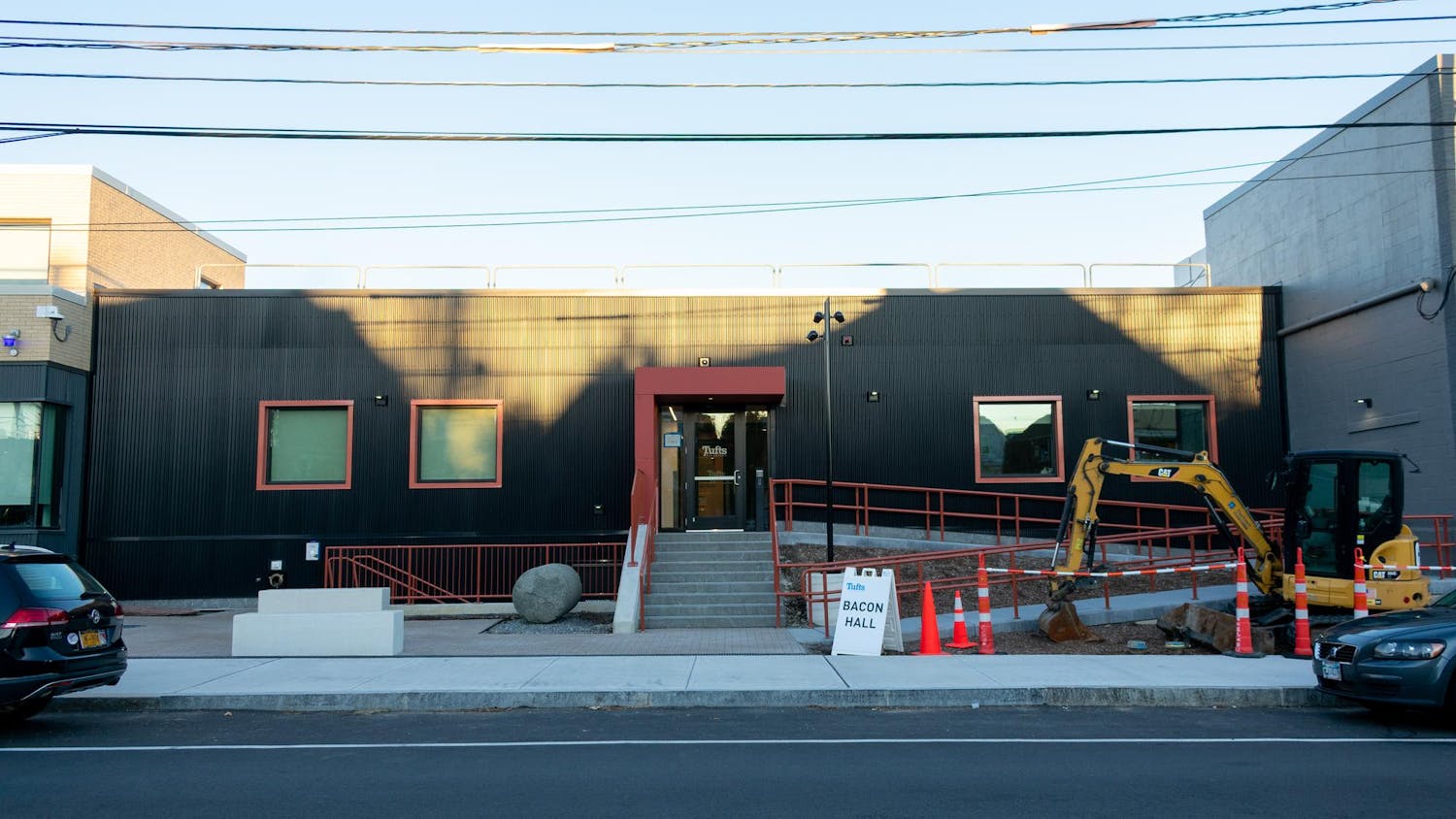Tufts graduate student Rümeysa Öztürk was detained by Immigration and Customs Enforcement agents on the evening of March 25 on her way to an Iftar dinner. The Tufts community and local residents demanded that she be released from ICE detention and return to her studies at Tufts. This article provides a timeline of actions relating to Öztürk’s case and related activism on and off campus, from her detainment to her release.
March 25 — Rümeysa Öztürk was detained near her off-campus apartment in Somerville by plainclothes ICE officers. She was transported to a Massachusetts detention center, taken through New Hampshire and Vermont, then flown to an ICE detention center in Louisiana. Öztürk’s attorney filed a habeas corpus petition for her release in Massachusetts.
March 26 — In protest of Öztürk’s arrest, over 2,000 students, faculty and local residents turned out to Powder House Park, just outside of Tufts campus. The protest was organized by several activist groups from the Boston area and the Coalition for Palestinian Liberation. Local officials, including Somerville Mayor Katjana Ballantyne, Massachusetts Reps. Erika Uyterhoeven and Mike Connolly and Medford City Council President Zac Bears, were present at the rally.
March 27 — Secretary of State Marco Rubio confirmed on March 27 that Öztürk’s valid F-1 visa had been revoked. Öztürk’s visa was terminated without notice to her or to the university administration. Sen. Elizabeth Warren, D-Mass., and over 30 other senators and representatives of Congress released a letter demanding more information regarding the cause and legality of her detainment. Over 1,000 current and former students of Tufts University signed a petition calling for proactive protection of its community members against federal deportations.
March 28 — U.S. District Judge Denise Casper ordered that Öztürk not be removed from the country unless otherwise ordered by the court.
April 1 — Coalition for Palestinian Liberation held a walkout at Ballou Hall, demanding that Öztürk be released while reiterating calls for the university to divest from Israel. Protestors made seven demands to the university, including to “condemn Rümeysa’s abduction for pro-Palestine speech,” “expunge student disciplinary records” and cut ties with the U.S. Army DEVCOM, which shares a joint research lab with the School of Engineering.
April 3 — In a U.S. District Court hearing in Boston, Öztürk’s lawyers argued Casper’s jurisdiction over Öztürk’s case while a lawyer from the Department of Justice argued it should be transferred to a court in Louisiana. Öztürk’s lawyers presented 23 affidavits in support of her release to Casper, including one signed by University President Sunil Kumar.
April 4 — Judge Casper ruled to transfer Öztürk’s case to Vermont, the state in which Öztürk was being held at the time her lawyers filed a habeas petition, denying the government’s motion to dismiss Öztürk’s habeas petition and request to transfer the case to Louisiana.
April 7 — The university confirmed that the federal government terminated the visa of a second graduate student on April 3 but did not disclose their identity.
April 10 — Öztürk’s counsel filed her written declaration, which recounts the sequence of her arrest and subsequent detention from personal memory. Öztürk described how at the time of her arrest, she initially feared for her life, assuming that she was being kidnapped as a result of being doxxed by Canary Mission. Öztürk stated that she had suffered four asthma attacks while in ICE custody and described the “inhumane” environment of the Louisiana detention facility.
April 11 — Seven post-completion Optional Practical Training participants at Tufts had their Student and Exchange Visitor Information System records or F-1 visa status terminated as of April 11.
April 14 — Lawyers argued for Öztürk’s release before U.S. District Judge William Sessions III in Vermont. Öztürk’s lawyers held that the Vermont district court has jurisdiction over the habeas petition, while a Justice Department lawyer argued that Vermont does not have jurisdiction under federal immigration law.
April 16 — A Louisiana federal immigration judge denied bond to Öztürk. The judge determined that she was a “flight risk and a danger to the community.” Öztürk’s lawyers wrote that the judge’s decision was based solely on a memorandum presented by the Department of Homeland Security, which concluded that the op-ed Öztürk co-authored created “a hostile environment for Jewish students and indicating support for a designated terrorist organization.”
April 18 — Sessions ordered that Öztürk be moved to Vermont no later than May 1 from Louisiana. Sessions concluded that the Vermont district court holds jurisdiction to consider Öztürk’s request for habeas relief. He determined that Öztürk’s legal counsel could not be faulted for “improper” filing of her immediate custodian in her habeas petition, which the government argued was reason enough for the petition to be dismissed.
April 24 — After the Department of Justice filed an appeal to Session’s April 18 order on April 22, Sessions denied the appeal, reiterating the court’s decision that ICE officers must transfer Rümeysa Öztürk back to Vermont no later than May 1. Sessions wrote that Öztürk’s return is in the interest of her access to sufficient medical treatment as well as in consideration of her religious practices and ability to participate in future proceedings.
May 7 — The U.S. Court of Appeals for the Second Circuit ruled that the administration under President Donald Trump had until May 14 to comply with the district court’s order to transfer Öztürk to immigration custody in Vermont.
May 9 — Öztürk was released on bail from ICE custody in Louisiana. Her release came hours after Sessions ordered her release in a bail hearing on the same day. He did not issue any travel restrictions.






